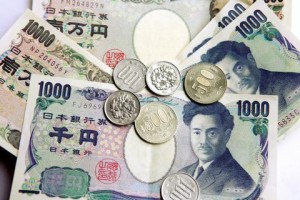The exchange rate of Japanese Yen remains at a decreasing trend in the past years. Japan’s currency touched a six-year low and it has slid 2.9 percent in September, on track for its biggest loss since November.
Why the Japanese government wants such a low exchange rate?
I think the first reason is because of the economic downturn of the domestic economy. For Japan to increase the competitiveness, it is necessary to lower its exchange rate to increase its exports. Because lower exchange rate means that the product is relatively at a lower price, therefore increase the demand for exports. (If the price elasticity of demand is elastic) Besides it can also attract more investments from abroad.
However this is not always the case. When the Japanese yen is depreciating, although more foreign investors might be attracted, but the low value of the currency also decreases the profit they earned from Japan. Therefore some of them might no longer willing to invest in the future. Besides, there are also some other cons, for example, low exchange rate also make the price of imports higher, so the imported raw materials may cost more, which results in a cost-push inflation.
In conclusion, lowering the exchange rate both has its benefits and drawbacks. Japanese government might take action such as deflationary monetary policy to control the domestic price in order to control the inflation.
